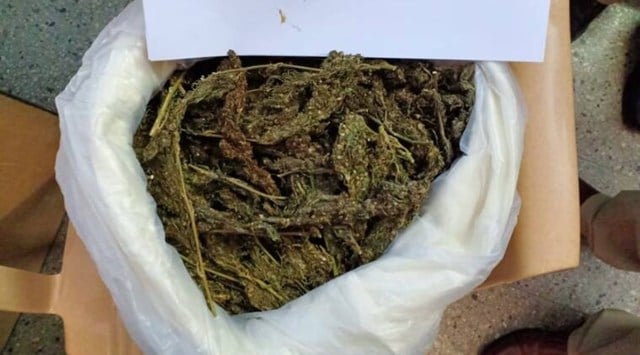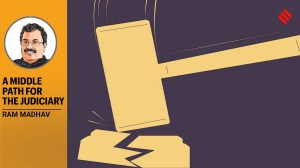Avoid jail for drug users, seizure of small amounts: Social justice ministry
In a recommendation sent a few days ago, the ministry has sought decriminalising possession of small quantities of drugs for personal consumption.
 The Ministry of Social Justice and Empowerment sent its suggestions to the Department of Revenue in this regard.
The Ministry of Social Justice and Empowerment sent its suggestions to the Department of Revenue in this regard.In its suggestion to review the Narcotic Drugs and Psychotropic Substances (NDPS) Act, the Union Ministry of Social Justice and Empowerment has recommended a more humane approach, avoiding prison, for drug users and addicts.
In a recommendation sent a few days ago, the ministry has sought decriminalising possession of small quantities of drugs for personal consumption. It has suggested amendments to the NDPS Act to treat those who use drugs or are dependent on them as victims, to be referred for de-addiction and rehabilitation, and not sentenced to jail.
Last month, the Department of Revenue — the NDPS Act’s nodal administrative authority — had asked several ministries and departments, including the Home Ministry, Health Ministry, Social Justice and Empowerment Ministry, the Narcotics Control Bureau and CBI, to suggest changes to the law, if any, along with their rationale.
The Ministry of Social Justice and Empowerment sent its suggestions to the Department of Revenue in this regard.
In line with norms
The Ministry’s stand is in line with recommendations of the International Narcotics Control Board, which state that criminalisation of drug use only perpetuates stigma and can compound the problem. The Board is an independent, quasi-judicial body for implementation of the UN's drug control conventions.
In India, drug consumption or possession is a criminal offence. Currently, the NDPS Act only adopts a reformative approach towards addicts. It gives addicts (or dependents) immunity from prosecution and imprisonment (if found guilty) if they volunteer for treatment and rehabilitation. However, there’s no provision for relief or exemption for, say, first-time users or recreational users.

For instance, Section 27 of the NDPS Act prescribes imprisonment of up to a year or a fine of up to Rs 20,000, or both, for consumption of any narcotic drug or psychotropic substance. It makes no distinction between addicts, first-time users and recreational users. This is one of the provisions for which the ministry has proposed that the prison term and fine be replaced with compulsory treatment in government-run rehabilitation and counselling centres, for at least 30 days.
Section 27 has been used in several high-profile cases, the latest being the arrest of actor Shah Rukh Khan’s son Aryan Khan in an alleged drug bust on a cruise ship.
In the case of sections dealing with punishment for possession of different drugs and psychotropic substances, the ministry has suggested that the law exclude those caught with “small quantities” (meant only for personal consumption) from a prison term. Compulsory treatment in government centres has also been recommended for them.
Small quantities under the NDPS Act mean amounts less than those specified by the Union government by a notification in the Official Gazette. For instance, the government has set 100 grams as the limit for a small quantity of cannabis, and 2 grams in case of cocaine.
The NDPS was framed in 1985, taking into account India’s obligations to the UN conventions. The Act prohibits trade, production, use and possession of drugs and psychotropic substances, irrespective of purpose, except for medical and scientific reasons. However, cases of possession for personal consumption or cases of drug use make up a majority of the NDPS cases. According to a study released by Vidhi Centre for Legal Policy last year, 97.7% of NDPS cases in Maharashtra in 2017 and 97.3% cases in 2018 involved were that of “possession for personal consumption”.
Must Read
Buzzing Now



Mar 29: Latest News
- 01
- 02
- 03
- 04
- 05























